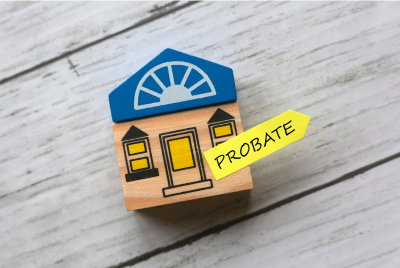Understanding Probate in Connecticut
When people find that they are facing Probate court, they can become anxious. Probate is the legal process of administering the estate of a deceased person. The probate process is overseen by the probate court and shall be handled by an executor or administrator appointed by the court. This process can seem complex and intimidating. It helps to understand the probate process, so you can properly prepare for it.
Here are the steps involved in the administration of an estate in Connecticut:
- Filing the Will: The first step is to locate the original will of the deceased. The person named as the executor in the will must file it with the Probate Court in the district where the deceased resided at the time of their death. If there is no will, the court will appoint an administrator to handle the estate. The executor or proposed administrator must also provide notice to all heirs and beneficiaries named in the will or, if there is no will, to the deceased person’s legal heirs according to Connecticut’s intestacy laws.
- Appointment of Executor/Administrator: Once the will is filed, the court will review it and officially appoint an executor or administrator. This person will be responsible for managing the probate process and administering the estate.
- Inventory and Appraisal: The executor or administrator is required to prepare an inventory of all the deceased person’s assets, including real estate, bank accounts, investments, personal property, and any other relevant assets. They may need to hire professionals to appraise certain assets to determine their value.
- Notice to Creditors and Heirs: The executor or administrator must notify creditors of the deceased person’s death and the probate proceedings.
- Payment of Debts and Taxes: The executor or administrator is responsible for identifying and paying all outstanding debts and taxes owed by the estate. This includes funeral expenses, outstanding loans, credit card debts, and any applicable estate or inheritance taxes.
- Final Accounting and Closing the Estate: The executor or administrator is required to prepare a final accounting that details all financial transactions and distributions made during the probate process. Once the court approves the final accounting, the assets can be distributed, the estate can be closed, and the executor or administrator will be discharged from their duties.
- Final Income Tax Returns: The executor or administrator is responsible for the filing of the decedent’s final income tax return and an income tax return for the estate.
- Distribution of Assets: After paying off debts and taxes, and getting probate court approval of the final accounting, the executor or administrator can distribute the remaining assets according to the terms of the will or the state’s intestacy laws.
It is important to note that the probate process in Connecticut can vary depending on the complexity of the estate and whether any disputes arise among the beneficiaries or creditors. Seeking legal advice from an experienced probate attorney will ensure compliance with the specific requirements and help you to navigate any potential challenges that may arise during the administration of probate in Connecticut.
Do you have questions?
Count on your experienced team at Ericson, Scalise & Mangan, PC to provide you with sound guidance for your Estate Planning, Elder Law, Real Estate, Probate, Trust & Estate Administration, and other legal needs. For assistance, contact us today at (860) 229-0369, or email us at info@esmlaw.com.

